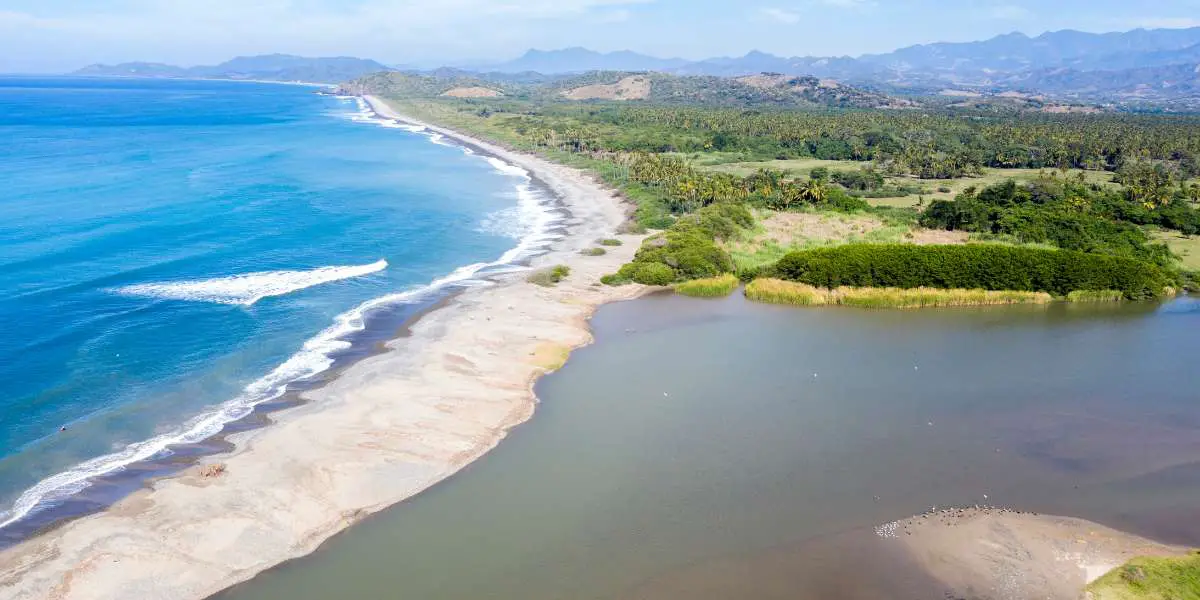Thailand is an incredible place, full of friendly people, amazing food and lovely warm weather and scenery. Taking that into account, it’s no wonder that people would want to go there and work remotely!
Working remotely is something that’s becoming more and more popular these days, it’s very likely that it will become a legit option as a full-time form of work in the very near future.
With the advent of cloud computing, VPNs, and the increased speed in broadband and mobile data, the ability to effectively work remotely has really taken off. This means you can easily work remotely in Thailand.
Where To Locate Yourself In Thailand For Remote Working
Although Thailand isn’t a massive country, the difference between city life and a more rural setting is noticeable. I’m sure you could say the same about any country, but in this instance, it’s important due to internet speed.
In the cities and resort areas of Thailand, internet speed tends to be surprisingly high, and comes at a very reasonable price. You can get a 500 Meg broadband connection for about $30 a month.
Chiang Mai
Chiang Mai tends to be the hub for Digital Nomads in Thailand, rents here and generally lower than places like Bangkok or Phuket and there are quite a few shared workspaces offered in the city.
It’s not a huge city when compared with somewhere like Bangkok, but for a digital nomad Chiang Mai fits the bill quite well. The shared workspaces can be useful if you want to mingle with other young digital nomads and bounce ideas off each other.
Something to bear in mind about Chiang Mai should you decide to move there is what’s known as “Burning Season”. This is a 3 month period each year (usually February, March and April) where farmers in the north of Thailand burn their crop fields in preparation of new planting.
During burning season, the level of air pollution in Chiang Mai can get really bad (think Victorian London smog bad), to the point where quite a few expats and digital nomads who live there will move further south for the duration.
Bangkok
Being the capital city, you can expect rental prices to be somewhat higher than in other areas, and your expectations are correct. On the other hand, you’ll find that there’s a lot more infrastructure available in Bangkok than in some other areas.
Here, you’ll have access to both the elevated train system (BTS Skytrain) as well as the Metro subway system. Both of these will make your life a lot easier as the traffic congestion in Bangkok is very high.
Bear in mind, if you rent an apartment or condo that located close to one the BTS stations then you can expect the rent often to be a bit higher. Although to be fair, you will have the added advantage of being able to travel around Bangkok quickly and affordably.
Phuket
Phuket is a truly stunning part of Thailand, the beaches are stunning and the island pretty much offers you everything you could desire. However, this comes at a price, and it’s quite a price! The cost of living on Phuket is noticeably higher than in other parts of Thailand.
Depending on what your monthly income is, you may well be able to afford to live in Phuket, but if you are working on a limited budget then it’s probably better to avoid it.
Pattaya
Pattaya is a favorite of mine, you have access to quite a lively city with decent rental prices. It has good broadband speeds but also features excellent nightlife, lots of markets and access to some wonderful beaches.
There’s quite a good transport system in place also with the Baht buses that pretty much do laps of the city, all the way down Beach Road and back up along 2nd Road. There are also some that will go over to the East side of the city.
As you travel East and away from the beach you’ll find that the price of property rental will go down, although to be honest, you can get some great rental prices close to the beach.
Renting Property In Thailand
If you are planning on visiting Thailand for a few months or even a year or more then renting is the way you’ll want to go. Purchasing property in Thailand may be something you could look at in the future, but there are a number of restrictions in place for you as a foreigner.
As a non Thai citizen, you are not allowed to buy land or a house, however you are allowed to buy an apartment / condo and can long term lease land and build a house on that land.
However, I’ve checked with a few expats in Thailand and they all seem to say the same thing, if you do buy a condo, there is an extremely limited resale market. Your best bet is to aim at the rental markets.
Rental prices will differ depending on where you wish to stay, as a rule, Bangkok and Phuket will generally be more expensive than other locations. You may still pay high rents in other places, but overall they’ll be cheaper.
A good website to look for rentals is Thailand Property, you can find a good selection there. Surprisingly, a very good place to look for rental properties is the Facebook Marketplace, you can often find better prices here.
Visa Requirements For Thailand
The visa situation in Thailand can be something of a mystery at times, with the Thai Government making changes out of the blue. The reality is though, unless you have a work permit, you shouldn’t really be working in Thailand.
Although there are many who do work remotely from Thailand, if you choose to do so then be very careful about who you decide to tell about it. Also, do not enter into any contracts with Thai companies, working online is something of a grey area, but if you take money from a Thai company then it will be pretty difficult to explain to the authorities.
You can get a 30 day tourist visa very easily, and very often get visa on arrival (depending on your country) free of charge, or you can pay for a 60 day tourist visa if you apply at the Thai consulate or embassy in your country.
These visas can be extended for a fee if you visit the local visa office, but the Thai authorities are cracking down on foreigners who previously were doing what’s known as visa runs, where they would travel to maybe Cambodia or Laos for a day then return to Thailand, thus resetting the clock on the visa.
Depending on your age, you could apply for a retirement visa if you are aged 50+, but I suspect that most people reading this are younger. If you are interested in applying for the O-A retirement visa you can read more about it here.
Another option you could possibly look at is to apply for an educational visa, you can study different subjects but likely the most popular would be Thai language, in all honesty, this is actually a really good topic to cover as it can help you quite a bit during your future in Thailand. Being able to understand what is being said may well help you in your future travels in Thailand.
To apply for a Non-Immigrant ED Visa you need to be accepted on a full time educational course, training program, or internship in Thailand. Also, the school and the course has to be recognized by the Thai Government and the course must require students to attend classes for at least 100 hours for every 90-days, this works out at about 8 to 10 hours a week.
Health Insurance & Vaccinations
Health insurance is something I’d highly recommend that you invest in if you’re going to be staying in Thailand for an extended period of time. You have a large choice of providers but a very popular one is Pacific Cross Health Insurance.
Vaccinations are definitely worth investing in before you travel to Thailand, the ones you need to get will vary depending on which part of Thailand you intend to stay in. Some of the vaccines that you’d likely want to get would be Measles-Mumps-Rubella (MMR), Polio, Hepatitis, and others.
It’s best that you consult with your own Doctor or medical professional and determine what vaccines would be required for your travel to Thailand.
Online Work In Thailand
Depending on what type of remote work you will be doing, you may be able to supplement your income with some other online income.
This may not be possible if you are bound to a set timetable, for example if you are working remotely for a company in a different time zone then you would have some free time in the morning or night time.
There are some excellent online jobs that you could do which don’t require specific training. Bear in mind though, I’d not recommend these as your primary source of income, just as a way to maybe help top up the funds.
An interesting one is UserTesting.com – once you register, you can put your name in the hat to be selected to review different things like mobile apps, websites, etc. Sometimes you’ll need to vocalize as you test, other times you’ll be asked to follow instructions, perform set actions and maybe a short quiz at the end.
Payment for successful tests varies, but it’s usually about $10 for a 20 minute long test, this gets paid into your Paypal account 7 days after the test.
If you are a proficient English speaker, then Cambly might be a very good option for you. It’s a system that many people from Asia and the Middle East will use to practice their English skills.
Your task is to help the students practice their English via webcam and VOIP. It also pays decently enough at $10.20/hour, this may not sound like a huge amount but an hour a day could cover your rent for the month.
If you are interested in teaching English in Thailand but don’t have a degree, you can check out our article about that here.
Be Pepared Before You Move!
I think something that really needs to be emphasized is the need to be prepared before relocating to Thailand for remote working. For example, when everyone jumped on the Shopify bandwagon and decided that dropshipping was the future, quite a few of them moved to Chiang Mai.
The issue with this was that a lot of these Digital Nomads who relocated hadn’t actually got any Shopify stores or a proven audience in place before they moved. Added to that, with the increased competition from other dropshippers, their funds soon ran out and they had to move back home.
Assuming that you’re going to be working for yourself, I strongly recommend that you already have an established income stream before you relocate.
Also, try to factor in unforeseen bumps in the road and prepare for them if possible. Take for example, the changes that Amazon made to the commissions they pay to their affiliates, some of them dropped from 8% down to 3%, that made for a big drop in monthly income for a lot of bloggers.
As mentioned above, teaching English online in Thailand can be a good way to supplement your income, to increase your chances to find work with this you could take a TEFL Course before relocating.
Conclusion
So as you can see, working remotely from Thailand is very possible, if not entirely legal. It can be done on a limited budget but there are ways to supplement your income with other online work.
You can get by on a fairly limited budget as Thai food is usually cheap and delicious, although I’d recommend having some savings and an already functioning remote business before you decide to relocate.
Thailand has a lot of wonderful features that makes it very attractive to Westerners: the food, the beaches and scenery, the people and the cost of living. Taking all of that into account, then why wouldn’t you want to work remotely from Thailand?




